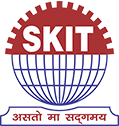Universal Human Values (UHV)
The present education system has become largely skill-based. The prime emphasis is on science and technology. However, science and technology can only help to provide the means to achieve what is considered valuable in terms of facilities. Value Education is a crucial missing link in the present education system. Because of this deficiency, most of our efforts may prove to be counterproductive and serious crises at the individual, societal and environmental level are manifesting.
Values and skill complement each other. Values mean importance or participation and skills mean qualities, training, and capabilities. To fulfill our aspirations both values and skills are necessary. When we identify and set the right goals and produce in right direction, this is known as value domain, the domain of wisdom. Basically we must know what really is useful to achieve human happiness, the happiness to all and for all the time.
And when we learn and practices to actualize this goal to develop the techniques to make this happen in real life, in various dimensions of human Endeavour, this is known as domain of skills. Hence, there is an essential bonding between values and skills for the success of any human endeavor.
For a happy and successful life it is important to know, explore, verify and practice universal human values, professional ethics.
At SKIT Jaipur we not only educate our students and staff community but also practice values and ethics so that students can realize and actualize all goodness with human values and professional ethics.
OBJECTIVES OF UHV & E COMMITTEE
Nurturing students to live with mutual happiness with human beings and mutual prosperity with rest of Nature along with the development of technical and managerial competence.
UNIVERSAL HUMAN VALUES
A humane society is composed of families living together in a relationship of mutual fulfilment. Such a society would make effort for a common, humane goal, which can be articulated as…
Happiness in every individual (through right understanding and right thought)
Prosperity in every family (through production of more than required physical facility by way of labour, using cyclic and mutually enriching natural processes)
Fearlessness in society (through clarity and practice of justice in human- human relationship)
Co-existence in nature/existence (through ensuring all processes are in harmony with the natural/existential laws)
The key is the development of right understanding and right thought in every individual by way of humane education; and, of course, the practice of living accordingly. As a whole, this can be called humane education. This is both, the expectation from as well as the responsibility of the parents/elders, teachers and responsible people/systems of the society.
METHODOLOGY
- A self-reflective methodology of teaching is adopted. It facilitates understanding through self-exploration. The dialogue starts between the faculty and the student.
- It opens the space for the student to explore his/her role (value) in all aspects of living – as an individual, as a member of a family, as a part of the society and as an unit in nature
- Through this process of self-exploration, students are able to discover the values intrinsic in them.
KEY OBJECTIVES
- To help the student to see the need for developing a holistic perspective of life.
- To sensitize the student about the scope of life – individual, family, society and nature/existence.
- Strengthening self-reflection.
- To develop more confidence and commitment to understand, learn and act accordingly.
PROFESSIONAL ETHICS
Professional ethics are principles that govern the behaviour of a person or group in a business environment. Like values, professional ethics provide rules on how a person should act towards other people and institutions in such an environment.
Ethical principles underpin all professional codes of conduct. Ethical principles may differ depending on the profession; for example, professional ethics that relate to medical practitioners will differ from those that relate to lawyers or real estate agents.
However, there are some universal ethical principles that apply across all professions, including:
- honesty
- trustworthiness
- loyalty
- respect for others
- adherence to the law
- doing good and avoiding harm to others
- accountability
KEY OBJECTIVES OF “PROFESSIONAL ETHICS” EDUCATION
- Moral awareness (proficiency in recognizing moral problems in engineering like Plagiarism and patenting)
- Convincing moral reasoning (comprehending, assessing different views)
- Moral coherence (forming consistent viewpoints based on facts)
- Moral imagination (searching beyond obvious the alternative responses to issues and being receptive to creative solutions)
- Moral communication, to express and support one‘s views to others
UNIVERSAL HUMAN VALUES & ETHICS COMMITTEE
-
Dr. Nidhi Sharma, Convenor
-
Dr. Amit Jhalani, Member
-
Dr. Swati Arora, Member
- Mr. B.S. Sharma, Member
- Mr. Pradeep Sihag, Member
-
Yashvardhan Sharma, Student Coordinator
-
Aditi Sharma, Student Coordinator
HSUP120/HSUP220 Language Lab
Course Outcomes:
After completion of this course, students will be able to:
CO1: Use the phonetic symbols, transcriptions, and word stress in speaking the correct English language.
CO2: Make use of the rationale of one’s perspectives in GD & Extempore.
CO3: Demonstrate the techniques of dialogue writing and presentation skills by using them in appropriate contexts.
CO4: Apply the usage of vocabulary building in personal/professional contexts.
CO5: Analyze the intended meaning in the audio-visual communication.
Mapping Matrix of CO's and PO's
|
COs |
PO1 |
PO2 |
PO3 |
PO4 |
PO5 |
PO6 |
PO7 |
PO8 |
PO9 |
PO10 |
PO11 |
PO12 |
|
CO1 |
- |
- |
- |
- |
3 |
- |
- |
- |
- |
- |
- |
- |
|
CO2 |
- |
- |
- |
- |
- |
- |
- |
- |
3 |
3 |
- |
- |
|
CO3 |
- |
- |
- |
- |
- |
- |
- |
- |
3 |
3 |
- |
- |
|
CO4 |
- |
- |
- |
- |
3 |
- |
- |
- |
3 |
3 |
- |
- |
|
CO5 |
- |
- |
- |
- |
3 |
- |
- |
- |
- |
3 |
- |
- |
1FY1-23 Human Values Activities
Course Outcomes:
After completion of this course, students will be able to:
CO1: Explain the concept of operators, finite differences and interpolation
CO2: Apply Numerical methods to solve first order Ordinary Differential Equations and Algebraic and Transcendental equations
CO3: Use Laplace Transforms and Fourier transform in engineering applications.
CO4: Determine the solution of difference equations by use of Z transform.
CO5: Understand complex variables, analytic function, Conformal Transformations.
Mapping Matrix of CO's and PO's
|
COs |
PO1 |
PO2 |
PO3 |
PO4 |
PO5 |
PO6 |
PO7 |
PO8 |
PO9 |
PO10 |
PO11 |
PO12 |
|
CO1 |
- |
- |
- |
- |
- |
- |
- |
3 |
1 |
- |
- |
2 |
|
CO2 |
- |
- |
- |
- |
- |
- |
- |
3 |
3 |
- |
- |
1 |
|
CO3 |
- |
- |
- |
- |
- |
- |
- |
3 |
1 |
- |
- |
2 |
|
CO4 |
- |
- |
- |
- |
- |
- |
- |
1 |
- |
2 |
- |
2 |
|
CO5 |
- |
- |
- |
- |
- |
- |
- |
3 |
1 |
- |
- |
2 |
HSUL101/HSUL201 Communication Skills
Course Outcomes:
After completion of this course, students will be able to:
HSUL101.1/HSUL201.1: Comprehend the various domains of communication theory.
HSUL101.2/HSUL201.2: Demonstrate the correct usage of grammar.
HSUL101.3/HSUL201.3: Illustrate the meaning of the poems with their relevance in personal/ professional contexts.
HSUL101.4/HSUL201.4: Interpret the short stories, essays and plays with their moral/ ethical principles in personal/ professional contexts.
HSUL101.5/HSUL201.5: Produce cohesive paragraphs and blogs
Mapping Matrix of CO's and PO's
|
COs |
PO1 |
PO2 |
PO3 |
PO4 |
PO5 |
PO6 |
PO7 |
PO8 |
PO9 |
PO10 |
PO11 |
PO12 |
|
HSUL101.1/HSUL201.1 |
- |
- |
- |
- |
- |
- |
- |
- |
3 |
3 |
- |
- |
|
HSUL101.2/HSUL201.2 |
- |
- |
- |
- |
- |
- |
- |
- |
- |
3 |
- |
- |
|
HSUL101.3/HSUL201.3 |
- |
- |
- |
- |
- |
- |
- |
3 |
- |
3 |
- |
- |
|
HSUL101.4/HSUL201.4 |
- |
- |
- |
- |
- |
- |
- |
3 |
- |
3 |
- |
- |
|
HSUL101.5/HSUL201.5 |
- |
- |
- |
- |
- |
- |
- |
- |
- |
3 |
- |
- |
HSUL102/HSUL202 Universal Human Values
Course Outcomes:
After completion of this course, students will be able to:
HSUL102.1/HSUL202.1: Describe the need, basic guidelines, content and process for value education.
HSUL102.2/HSUL202.2: Associate the role of harmony in family and society leading to Undivided Society/ Universal Order.
HSUL102.3/HSUL202.3: Identify engineering ethics, theories and strategies to resolve moral dilemmas.
HSUL102.4/HSUL202.4: Illustrate global issues related to multinational corporations, environmental ethics, and computer ethics.
HSUL102.5/HSUL202.5: Utilize the value-based essays with their moral/ethical principles in personal/professional contexts.
Mapping Matrix of CO's and PO's
|
COs |
PO1 |
PO2 |
PO3 |
PO4 |
PO5 |
PO6 |
PO7 |
PO8 |
PO9 |
PO10 |
PO11 |
PO12 |
|
CO1 |
- |
- |
- |
- |
- |
- |
3 |
3 |
- |
- |
- |
- |
|
CO2 |
- |
- |
- |
- |
- |
- |
3 |
3 |
- |
- |
- |
3 |
|
CO3 |
- |
- |
- |
- |
- |
3 |
3 |
3 |
- |
- |
- |
3 |
|
CO4 |
- |
- |
- |
- |
- |
- |
3 |
3 |
- |
- |
- |
3 |
|
CO5 |
- |
- |
- |
- |
- |
- |
- |
3 |
- |
- |
- |
3 |





